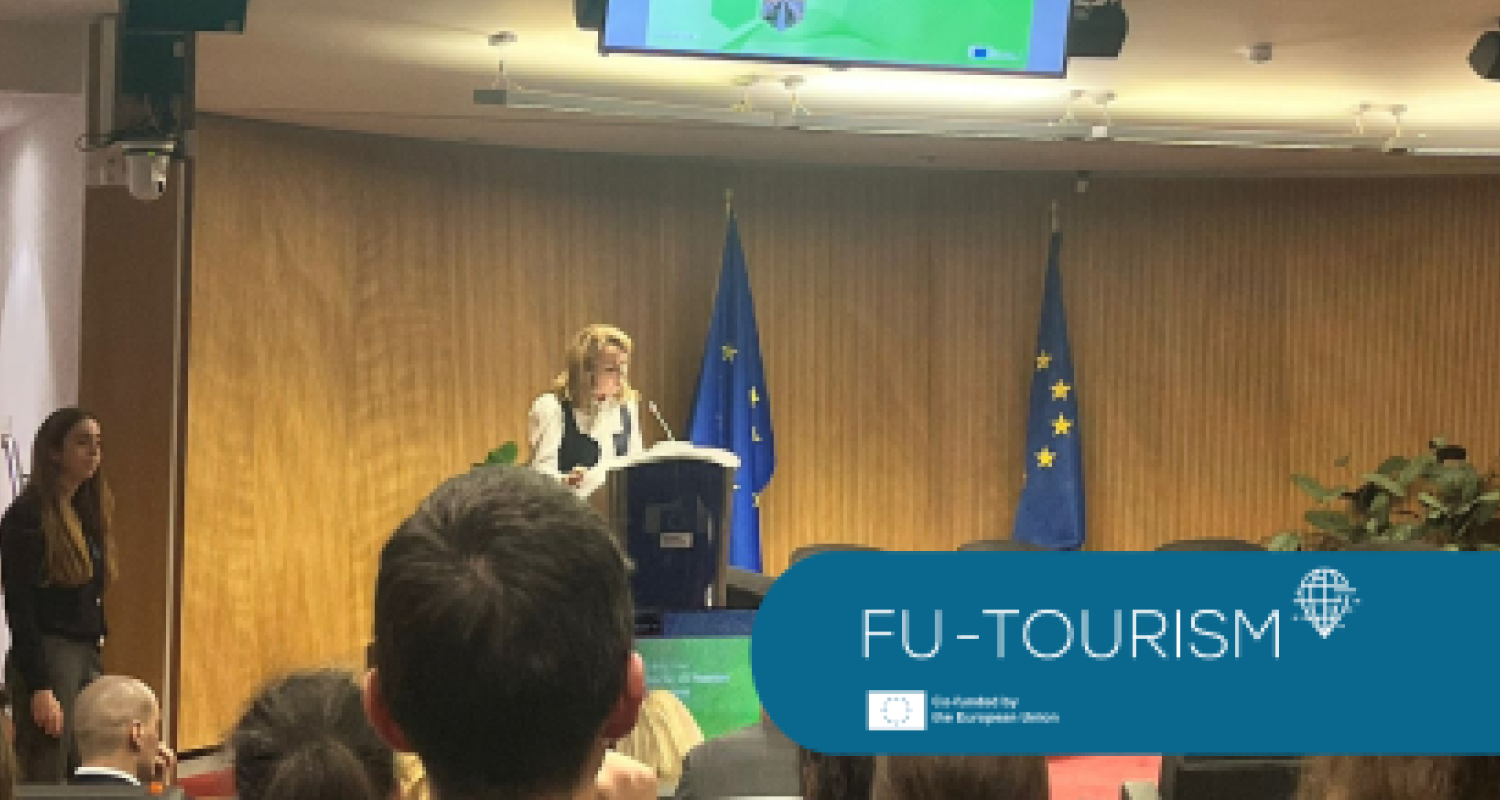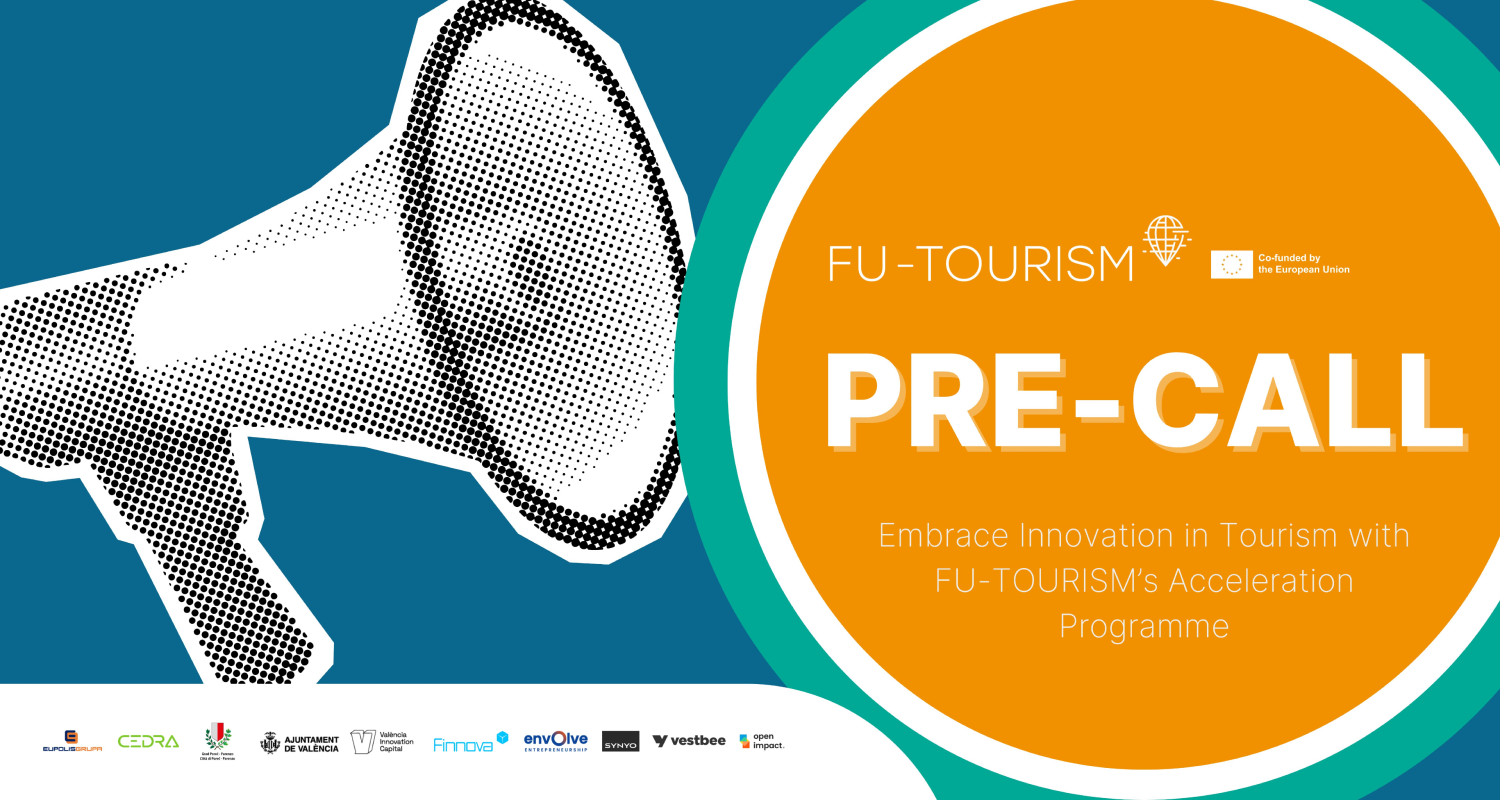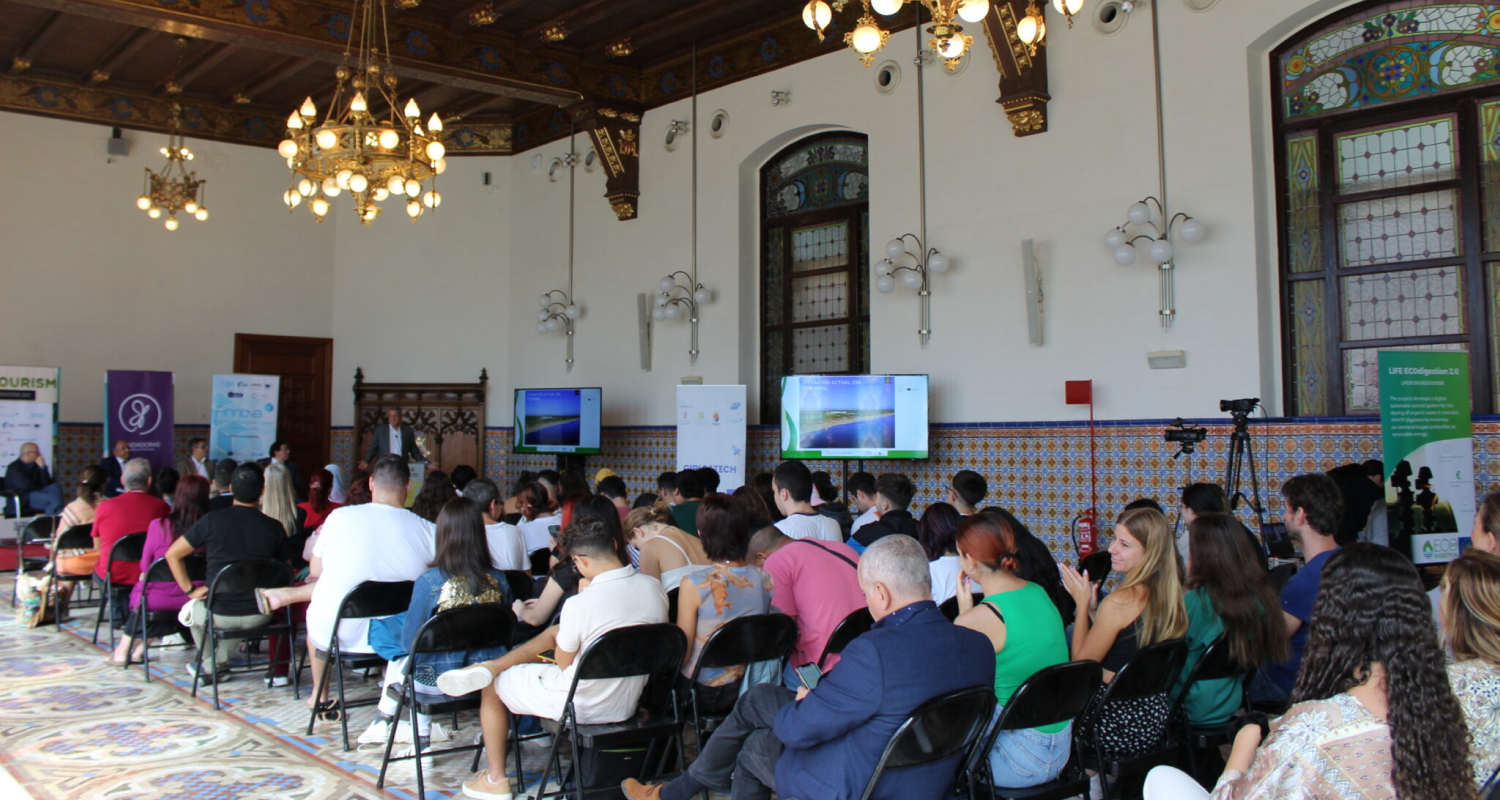
FU-TOURISM participates in Second Anniversary Celebration of the Tourism Pathway in Europe
- On March 15, the European Commission organized a hybrid event to reflect on the past, present and future of the tourism ecosystem.
- The Finnova Foundation, partner of the European project FU-TOURISM, attended the event where this project was presented.
Last Friday, March 15th, Finnova Foundation was present at the event "2-year anniversary of the Transition Pathway for Tourism", organized by the Directorate General for Internal Market, Industry, Entrepreneurship and SMEs of the European Commission (DG GROW). The FU-TOURISM project, in which Finnova Foundation is a partner, was presented at the event.
The event was the setting for unveiling some of the projects of the COSME Program for the competitiveness of enterprises and small and medium-sized enterprises (SMEs), which finances numerous initiatives that help small companies to access new markets. Among them was FU-TOURISM, which seeks to create a supportive environment for small and medium-sized tourism companies, encouraging greater collaboration in innovation between them and the sector's incubators and accelerators. The Finnova Foundation attended the event with the aim of creating synergies, networking and exchanging ideas that serve to produce future developments within the ecosystem.
The event, which celebrated two years of the Transition Pathway for Tourism, brought together stakeholders to reflect on the past, present and future of the tourism ecosystem. Attendees took stock of the progress made since the publication of this document, exchanged best practices and created networks to reflect on the future evolution of the tourism ecosystem.
Ecosystem of support for tourism SMEs
Funded by the COSME program with 4 million euros and with a duration of 36 months (2023-2026), the European project FU-TOURISM is led by EUPOLIS Group and integrated by a partnership of eight entities from Croatia, Belgium, Spain, Greece, Austria, Poland and Italy. FU-TOURISM will develop a support ecosystem for tourism SMEs, promoting greater cooperation in innovation between these companies and incubators and accelerators in the sector.
To this end, it will launch an acceleration program that will identify and support a total of 102 tourism SMEs in the six European countries that are part of the project through support services for sustainability, digitalization, inclusive business models and direct financial assistance.
During the acceleration program, 10 SMEs from each country will be selected in a transparent and open manner to receive a 5-month support and a grant of 20,000 euros each. In addition, the Scaling Up program will select 42 SME consortia (7 per-country) to receive a grant of 30,000 euros each and corresponding business support.
Living Labs for the transition of SMEs in tourism
One of the key pillars of the FU-TOURISM project is the development of a platform and network of collaborative 4-Helix Clusters, known as Tourism SME Transition Living Labs. These clusters will enable SMEs to be placed at the center of the tourism ecosystem, adopting a multi-stakeholder approach that takes into account the broader needs of the destination, visitors and local citizens.
Transition Pathway for Tourism
In February 2022, the European Commission published the Transition Pathway for Tourism, a strategy created jointly with stakeholders that sets out concrete actions for the coming years. Through an online call for commitments, tourism stakeholders are invited to contribute to this process, supporting the green and digital transition of the tourism ecosystem, ultimately increasing the resilience of the sector. 4 sets of commitments and pledges have been published since then, and the call remains open for a continuous expansion of the stakeholder community.
FU-TOURISM addresses the need for European tourism SMEs to adapt to a sustainable, digital and inclusive economy. With € 4 million COSME funding, the project will foster innovation through a support ecosystem, selecting 102 SMEs for acceleration and grants. The project aims to enhance cooperation among SMEs, incubators and accelerators, ensuring a future-proof and resilient tourism sector.
The project is led by Eupolis (Croatia) and is being implemented together with seven other partners: DUBROVNIK CITY (Croatia), Consell Insular de Menorca (Spain), Finnova (Belgium), Envolve (Greece), SYNYO (Austria), Vestbee (Poland) and Open Impact (Italy).
European tourism SMEs towards environmentally conscious and digitally integraged economy
A foundational element of the FU-TOURISM initiative is crafting a networked platform of 4-Helix Collaborative Clusters, designated as Living Labs, to facilitate the evolution of Tourism SMEs. The clusters will enable SMEs to be placed at the center of the tourism ecosystem, adopting a multi-stakeholder approach that takes into account the broader needs of the destination, visitors and local citizens.
Within the European Union’s framework, the COSME Program has emerged as a catalyst for the growth and development of businesses and SMEs. The FU-TOURISM initiative is among the projects financed by COSME from 2021 to 2027, distinguishing itself as a collaborative endeavour aimed at enhancing economic expansion, generating employment, and increasing the competitive edge of businesses throughout Europe.
Kicking off FU-TOURISM in Split, Croatia
The FU-TOURISM project successfully kicked-off in Split, Croatia on the 9th and 10th of November, marking the start of the 36-month initiative. The launch event set the stage for collaboration, establishing working groups and outlining management methodologies for the project’s lifespan.
Over the duration of 3 years, FU-TOURISM supports European tourism SMEs in their transition towards a green, digital, and inclusive economy, with a focus on the application of the principles of the regenerative economy. FU-TOURISM will develop a supportive ecosystem for tourism SMEs, promoting greater cooperation on innovation between these companies and incubators and accelerators in the sector.
Keywords
Green economy, Sustainability, EU Green Pact, Digital Transformation




